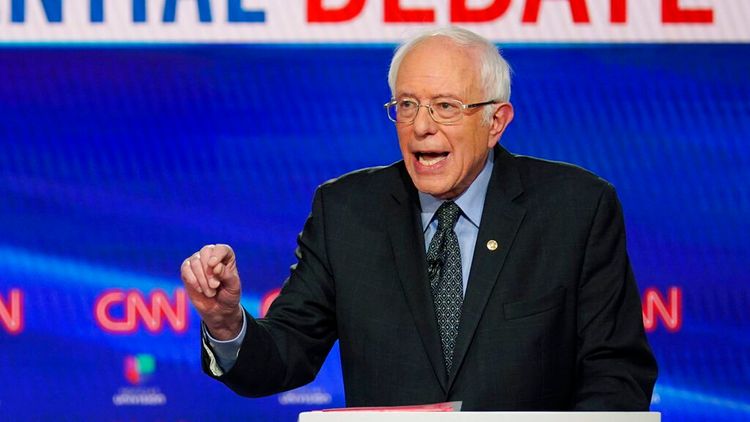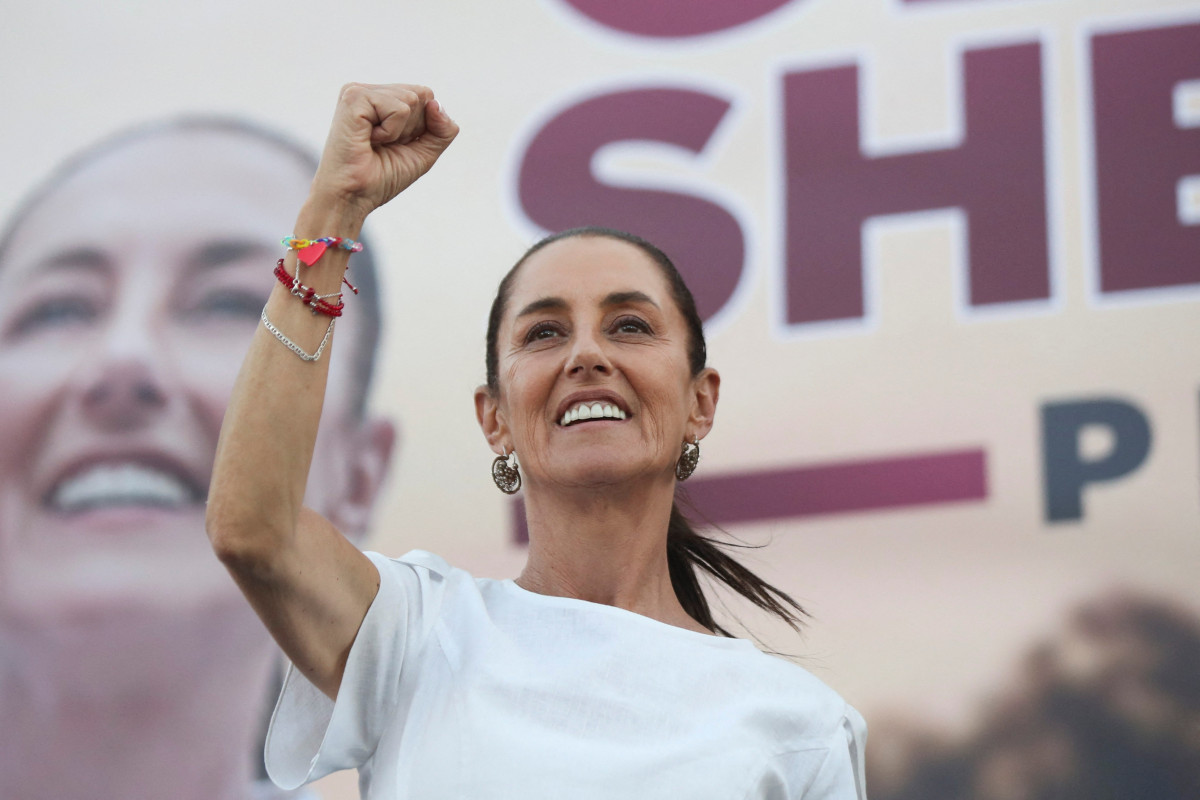Senator Bernie Sanders of Vermont dropped out of the Democratic presidential race on Wednesday, concluding a quest for the White House that began five years ago in relative obscurity but ultimately elevated him as a champion of the working class, a standard-bearer of American liberalism and the leader of a self-styled political revolution, APA reports citing The New York Times.
Mr. Sanders’s exit from the race establishes former Vice President Joseph R. Biden Jr. as the presumptive nominee to challenge President Trump, and leaves the progressive movement without a prominent voice in the 2020 race.
In a race reshaped, and eclipsed, by the escalating coronavirus crisis, Mr. Sanders faced no realistic path to the nomination after a series of lopsided losses to Mr. Biden, beginning in South Carolina in late February and culminating with a string of losses last month in crucial states like Michigan and Florida.
With the public health emergency preventing both candidates from holding in-person campaign events, Mr. Sanders spent the last several weeks on the sidelines, delivering addresses via live stream and making occasional television appearances, while facing calls from fellow Democrats to exit the race and help unify the party behind Mr. Biden. Though Mr. Biden had been careful not to pressure Mr. Sanders, he had begun to move ahead as if the race were over, taking steps, for example, to begin his search for a running mate.
As Mr. Sanders pursued the White House for a second time, he promised that he could transform the electorate, bringing new voters under the Democratic tent, but that goal eluded him. Even Mr. Sanders has lamented that he was unable to produce a surge in young voters.
In early primaries this year, he also failed to show that he had remedied a crucial weakness from his 2016 run: a lack of support from black voters, a vital base of the Democratic Party. In state after state across the South — Alabama, the Carolinas, Mississippi, Virginia — he was unable to chip away at Mr. Biden’s strong support among African-Americans.
In many ways, Mr. Sanders never overcame the widely held view among Democrats that he was a political outlier, a self-described democratic socialist who proudly proclaimed himself to be an independent senator from Vermont rather than a member of the party establishment.
Mr. Sanders championed and popularized liberal policies like “Medicare for all” and free four-year public colleges aimed at lifting up America’s working class, but he faced opposition from many party leaders, elected officials and major donors, as well as large numbers of moderate voters who saw him as too far left.
Mr. Sanders never accepted that argument. In recent weeks he said repeatedly that he had won the ideological debate, asserting that a strong majority of Democrats supported his progressive agenda. But during a striking news conference in Burlington, Vt., last month, he also acknowledged that he was losing the electability battle to Mr. Biden, saying voters had made clear that they thought the former vice president was the best candidate to beat Mr. Trump.
His departure from the race will amount to a striking turnaround for a candidate who less than two months ago was the clear front-runner, after finishing in a tie for first in Iowa and winning in New Hampshire and Nevada. And for a man who is loath to admit defeat, it is a concession that he saw no path to overcoming Mr. Biden, and that he may have more leverage for his liberal policy agenda if he ceded the race and joined forces with his rival.
His exit is also a sharp contrast to his bid in 2016, when he stayed in an increasingly acrimonious race against Hillary Clinton even after it became clear she would be the eventual nominee.
For months, Mr. Sanders had vowed to do everything he could to beat Mr. Trump in November, and his departure, though not what he had envisioned, amounted to an acknowledgment that continuing to battle against Mr. Biden would preclude the kind of party unity necessary for the general election fight ahead. Mr. Sanders has repeatedly said he would support the former vice president if he were the nominee.
Mr. Sanders, 78, leaves the campaign having almost single-handedly moved the Democratic Party to the left. He inspired the modern progressive movement with his expansive policy agenda and his impassioned message that “health care is a human right,” and electrified a legion of loyal supporters who wholeheartedly embraced his promise to lift up those who need it most. He also transformed the way Democratic campaigns raised money, eschewing big fund-raisers and instead relying on an army of small-dollar donors.
But Mr. Sanders stirred deep unease among party leaders, and as he ascended to the top of the field in February, establishment Democrats scrambled to block his path, convinced his far-reaching proposals would alienate great swaths of the electorate and make him an easy target for Mr. Trump.
Moderate candidates in the race who could not overcome Mr. Biden dropped out and endorsed the former vice president just before Super Tuesday, on March 3, helping him sweep 10 of 14 states on the biggest voting day of the primary. That led to a wave of new endorsements and a remarkable coalescing around Mr. Biden that Mr. Sanders could not match on the left.







